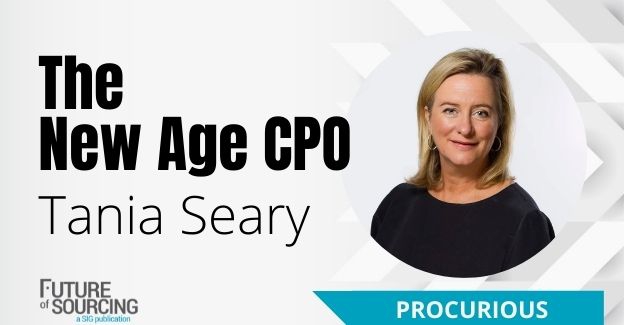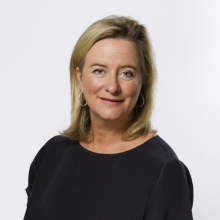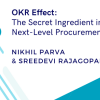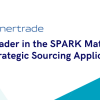In this series, Future of Sourcing is talking to practitioners, technologists and executives to get their insights and expertise on navigating current and future challenges impacting sourcing, procurement, risk and supply chain professionals. After the past two years, there’s a lot that we can learn from each other.
To be considered for this series or to nominate someone to be featured, please reach out to Stacy Mendoza, Managing Editor.
Tania Seary is the Founding Chairman of Procurious, an online network for procurement and supply chain professionals. Born and based in Australia, Tania’s fascination and commitment to procurement development began 20 years ago in the United States. After finishing her MBA at Pennsylvania State University, she became one of Alcoa’s first global commodity managers.
Throughout her career, Tania has worked to raise the profile of the procurement and supply chain professions. Here we talk to her about the launch of BRAVO, a network to help female professionals in the industry advance their career.
Can you provide an overview and some background on BRAVO – why you started this initiative, why it’s important right now and what you hope it achieves?
BRAVO is a leadership program and global network dedicated to helping women in procurement and supply chain professions get the resources they need to advance in their careers and shape a better future. For me, it’s important that women have the mentoring, peer-to-peer guidance and coaching they need to tackle the inequalities they still face in the workplace today.
I’ve had my fair share of personal challenges with the corporate workplace culture over the years in my career, especially as it related to becoming a mom. In fact, 20 years ago, I off-ramped from my corporate career to become a procurement entrepreneur because I was frustrated with my progress up the corporate career ladder. But I have always encouraged women to stay on track with their corporate careers for a number of reasons such as representation, professional development and recognition.
While we’ve come a long way in the last few decades, women are still being treated differently in the workplace and the past two years have set us back even more, making this initiative more valuable. Between taking on more unpaid labor or dropping out of the workforce, women are feeling more burnt out and the World Economic Forum estimates that COVID added at least another 36 years on the estimate to reach full gender parity.
Working in a hybrid environment also creates more disadvantages and power differences for women in the workforce. It’s reducing our access to sponsorship, the visibility of our hard work and making it harder for us to speak up. That’s why mentorship, peer support, masterclasses and more that can help women step into their power and reach their potential is so critical.
What are some ways BRAVO is building support (or plans to build support) and changing outcomes for women in the procurement and supply chain profession?
Members will automatically join a community of other like-minded women in the procurement and supply chain profession to lean on and learn from. But BRAVO also offers masterclasses specific to helping women build their leadership skills, self-confidence, negotiation skills and professional brand to take charge of their career.
Fixing the gender pay gap is a big issue that BRAVO aims to solve. Right now, the average pay gap across the profession is somewhere between 20% to 25% and women in senior ranks may be paid up to 35% less than their male peers. This gap compounds when women become mothers, with researchers estimating that raising children accounts for a 17% loss in lifetime wages.
Plainly speaking, this is unacceptable. Helping women become better advocates for themselves and enhancing negotiation skills to improve these statistics is just one of the ways BRAVO will make a difference.
Gender-specific programs like BRAVO also create a safe space for women to share and learn from each other: A KPMG survey found that 70% of women were more likely to speak about their career challenges and gender biases to other women. When women are able to openly express their concerns, we become more empowered to enact change. With BRAVO, women will find themselves ready to step into those leadership roles to improve the gaps in senior leadership as well.
Based on your experience in the industry and your discussions with CPOs, what do you think is the biggest obstacle for women working in procurement and supply chain roles?
The biggest obstacle for women has nothing to do with their ability or skillsets. In fact, women are more likely to possess the leadership skills needed to navigate future global challenges according to McKinsey. It’s more a matter of women getting the resources they need to advocate for themselves and increase their visibility.
Women in male-dominated spaces face the speaking-up double bind that prevents them from using their voices. Studies have shown that male executives who speak up more often are viewed as more confident while female executives are considered less competent and even more aggressive.
Mentorship is also a powerful tool to get ahead professionally, but too often women lack this type of mentorship that will open up these types of opportunities. Additionally, people tend to make more assumptions about women’s commitment to their jobs – especially if they have children.
All of these challenges have become even more difficult with the transition to fixed hybrid work models. Since women are more likely to work remotely full time and spend less time with their colleagues in person, these disadvantages become doubled.
Buying is different in an inflationary market. How can procurement respond to inflation?
First of all, we need to understand the facts. Such as what is driving inflation in your category and whether there is anything you can do to influence it (which is unlikely).
Increasing costs in many categories is inevitable, but for many companies and procurement pros, containing costs to ensure supply is more critical. We need to make sure our operations and services can continue running, so supply continuity is key. We need to use our best supplier relationship management methodologies to ensure we remain (or become) a “customer of choice” for our critical, strategic suppliers. For some procurement pros, this is a new dynamic, as buyers are usually in the driver’s seat, but now it is suppliers who have all the power.
To ensure supply continuity in this shifting power balance, procurement teams need new approaches to win over suppliers. Costs may be a casualty in the process, so strong communication with your internal stakeholders about the ramifications on end-unit pricing is critical.
During the pandemic, many women had to drop out of the workforce to become primary caregivers. How can women gain back some of the turf that may have been lost over the past two years?
Before the pandemic, women already spent an average of 4.1 hours per day on unpaid work, compared to men worldwide at 1.7 hours, and lockdowns and remote work placed an even larger burden of caregiving and household duties unfairly on women. According to recent studies, the first year of COVID alone knocked out 54 million women worldwide out of the workforce.
It’s been a difficult time for everyone, but the resiliency expected from women has been nearly unimaginable. Gaining back this ground will be difficult, but it starts with women asking and not hoping to get what they deserve. Female leaders need to ensure that the pay gap is fully closed within our organizations and advocate for our women colleagues. For ourselves, it’s time for women professionals to negotiate better for our pay and conditions.
We wouldn’t go into a procurement negotiation without a plan, and it’s time to put the same level of effort and preparation into how we walk into performance reviews and salary negotiations. With so much expected of us, we deserve to get the pay and support we need.
What resources and knowledge do industry professionals need to have now that weren’t needed pre-pandemic?
- Anticipate disruptions: A successful leader today doesn’t have all the answers, but they do need to ask the right questions. Addressing future global challenges requires a new form of leadership, one that values inspiration, participative decision-making, setting expectations and rewards, and people management – all skills that women are actually more likely to demonstrate. We won’t be able to predict everything but building on these skills and continuing to communicate can prepare us for what’s next.
- Get comfortable with being uncomfortable and thinking on your feet: The more senior you become in your career, the more ambiguity is thrown your way. Don’t be afraid to tackle those projects where you don’t know all the answers – it’s essential for learning and growth. Make sure you ask the essential questions but be confident in your abilities.
- Take a 360 approach: Today’s supply chain issues are more complex and touch on so many different areas they didn’t before, like climate change, human rights and even social media. Addressing the complexity of today’s supply chain will require us to always keep the bigger picture in mind.
- Lastly, be human: The future of our profession will increasingly adopt more tech, but humanity will always have a role in procurement. The real, human interactions and touchpoints we make vertically and laterally across the supply chain will be the real determining factors for success. Maintaining and fostering collaboration and innovation through these connections has the power to truly make a difference and drive us forward.
In your opinion – and based on your experience in the industry – what resources or tips do you have specifically for women who are starting out in procurement and supply chain?
My biggest advice for women just starting out in their careers is to remember that the power is in our hands. Women have an incredible opportunity to help enact change and create a more humane and equitable supply chain, and it’s time to take control and realize that we have the power to shape a better future.
While it’s easy to feel defeated by the events of the past couple of years, projecting confidence can have a serious impact on your ability to move up in your career. It’s not enough to hope to get that promotion or raise. Too many of us – women, in particular – strive for perfection and think that our work will naturally speak for itself. This mentality can actually hold you back. To get ahead, you need to be seen. We need to let the idea of perfection go, take ownership and proactively seek out new opportunities.









